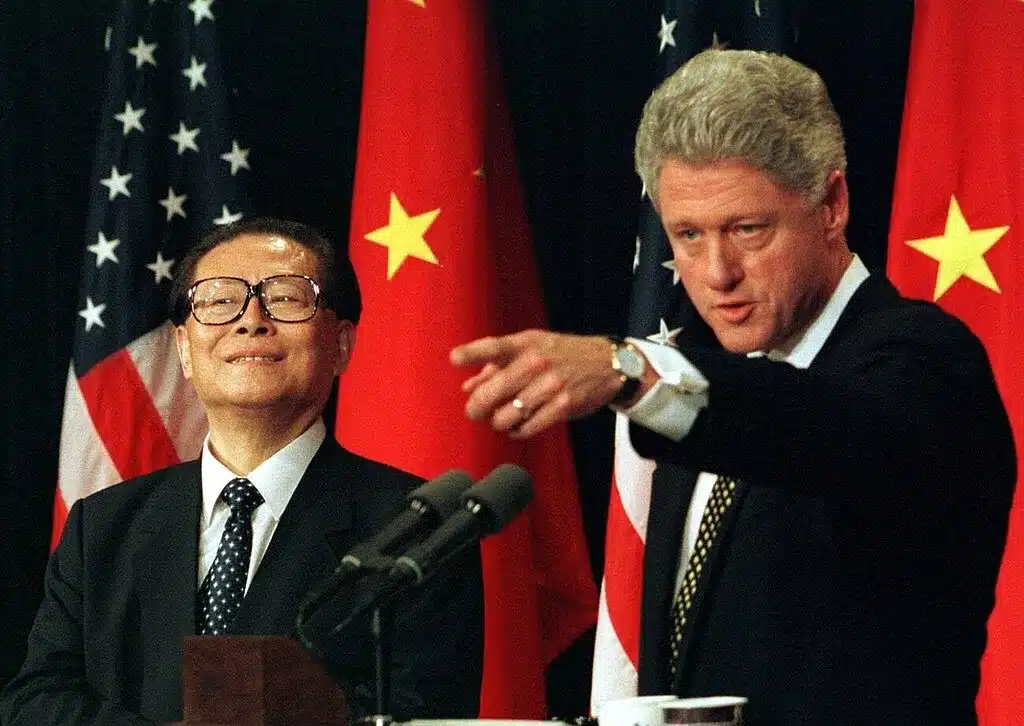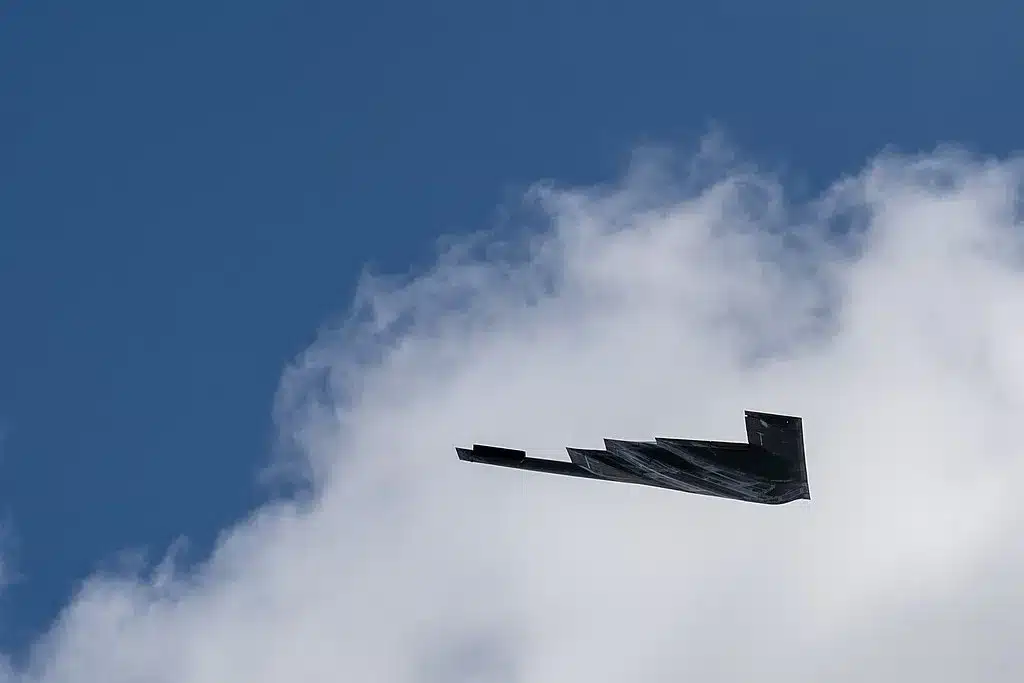Biden’s China Team: Who is Rush Doshi?
With Laura Rosenberger, Biden’s former Senior Director for China and Taiwan, having left her post in a long-planned departure, a round of changes has taken place in the White House. It was announced that Sarah Beran, currently Deputy Executive Secretary in the State Department, will take over Rosenberger’s role and that Rush Doshi, currently the National Security Council’s (NSC) Senior Advisor for China and Taiwan, will be appointed as her deputy. Doshi stands apart from many other policymakers due to his academic research background in Chinese grand strategy.
By way of background, Doshi is a second-generation Indian immigrant with a long-time interest in American politics and foreign policy. As a high schooler, he was one of two students in all of New Jersey selected to attend the American Legion’s Boys Nation program on Capitol Hill, a prestigious, week-long trip designed to foster involvement in American politics. As part of the program, he will have watched Senate committees in session and met several high-level politicians. Later, as an undergraduate at Princeton University, Doshi began building professional experience in government agencies, interning in state-level legislative staff positions and participating in various programs and internships with the Defense and State departments.
He also gathered extensive experience in Chinese politics research. Throughout his undergraduate studies, Doshi assisted Dr. Aaron Friedberg in writing his book, A Contest for Supremacy (W.W. Norton & Company, 2012), by translating articles in Chinese foreign policy journals, an experience which undoubtedly laid the foundation for his future research. Evidently a source of inspiration for Doshi, Friedberg, a China scholar at Princeton who served as an NSC advisor in the Bush Jr. administration, has long advocated that the US take a tougher stance on China.
Following his graduation from Princeton, Doshi enrolled in graduate courses on Foreign Policy at Yunnan University in Kunming for one year as a State Department Fulbright Fellow. Able to conduct research in both Mandarin and Hindi, Doshi continued to research Chinese foreign relations during this time, focusing primarily on Sino-Indian relations. This, in addition to regularly attending conferences, lectures, and interviews featuring prominent Chinese foreign policy scholars, no doubt further contributed to his multilateral understanding of Chinese foreign relations.
Following this experience, Doshi worked for a few years as an analyst and researcher at various DC consulting firms before attending graduate school. He received his doctorate in political science and government from Harvard in 2018, where his dissertation focused on Chinese grand strategy. He then became a fellow at the Brookings Institution, a prestigious Washington think-tank that houses experts from a variety of fields and conducts research into US public policy. Doshi eventually became the founding director of its China Strategy Initiative, a Brookings project that aimed to “understand the formulation and adjustment of Chinese grand strategy […] and to propose US responses”. In this position, Doshi directed a research project analyzing open-source or leaked CCP documents, policy reports, and speeches in order to understand China’s long-term grand strategy. This often entailed searching for repeated phrases, the contexts in which they were used, and their coincidence with shifts in Chinese strategy. He used the findings from this research to serve as the basis of his 2021 book, which grew popular among DC circles and presents his research as evidence of the CCP’s global ambitions for power.
Doshi’s subsequent book published in 2021, titled The Long Game: China’s Grand Strategy to Displace American Order, won high praise from academics, journalists, and former government officials. The Long Game presents a view contrary to that which most American policy has assumed since the normalization of relations with the People’s Republic of China: Doshi argues that China has had a clear plan since the Deng era to overtake the US as the global hegemon. Doshi’s main takeaway of China’s long-term strategy is that, over time, the party has aimed to “blunt” American power by joining US-led institutions and attempting to weaken US hegemony. He also argues that, since the 2008 financial crisis, Chinese strategy has shifted towards gaining regional influence as the US undergoes a self-precipitated decline (a fact he attributes to the wave of democratic populism) and that the PRC is recalibrating its strategy to emerge as a global leader throughout the next decade.
According to Doshi, China’s long-term strategy can then be broken up into three parts: 1989-2008 was spent blunting US power and building domestic strength, 2008-2016 was spent building and exerting great regional influence, and 2016 onwards has aimed at regional leadership and displacing the US as the global hegemon. Notably, Doshi is not the first Washington official to hold this view. Conservative China specialist Michael Pillsbury’s book, The Hundred-Year Marathon (St. Martin’s Griffin, 2016), was published a few years prior and presents a similar perspective. Pillsbury’s book drew less fanfare than Doshi’s and is written in a less rigorous style, relying on anecdotal experience as a China hand and analyzing actions taken by the CCP in past decades to present his opinion. Critics of Pillsbury’s book state that while it may be informative, it is often self-centered in its telling of Sino-American relations. In one review allegedly authored by Alice Miller, a research fellow at the Hoover Institution and lecturer in East Asian studies at Stanford, Miller was deeply critical. Raising doubts about Pillsbury’s language skills and the historical accuracy of his narrative, writing that “no one in this field as long as Pillsbury… can feign ignorance of all the evidence contradicting his heroic storyline”.
On the other hand, Doshi employs a more rigorous analytical framework and relies on closely-read Chinese Communist Party (CCP) primary sources. Though this method of research supports his claim with evidence, there are still limitations to this approach. During a Brookings-hosted webinar on the book, Jude Blanchette, the Freeman Chair in China Studies at the Center for Strategic and International Studies, raised the point that when authors use primary material, they—whether intentionally or not—sometimes miss or overlook sources that contradict their argument. In Doshi’s case, there may be CCP documents that contradict his analysis which he may have inadvertently overlooked in crafting his argument. A different review of The Long Game criticizes Doshi’s prescription of China always having had a plan to overtake the US overestimates the coordination of and internal disagreements within the CCP. While Doshi’s book presents an important contribution, one should keep in mind that his argument is not flawless.
Despite serving politically opposite administrations, Doshi and Pillsbury seem to have similar central views on China’s longtime ambitions and rise. As an advisor, Doshi is perceived to be less preoccupied than other officials on specific points of contention such as Taiwan, and instead tends to focus more on strategies the US can adopt to maintain a position of power in the face of China’s rise.
As for strategies that the US can use to deny Chinese aspirations global hegemony, Doshi points to a few different areas throughout his opinion pieces. He asserts that instead of fighting a new Cold War or forcing nations to choose between US-led or Chinese-led institutions, the US should join Chinese-led institutions in order to dilute China’s power and reassert American presence in Asia. An example of how this could be applied is US involvement in the AIIB (Asian Infrastructure Investment Bank)—contrary to Doshi’s vision, the US urged allies such as France and the UK not to join and was upset when they did, and still does not seek involvement due to governance and social concerns. Doshi also advocates that the US use atypical strategies to counter China, such as encouraging allies to loosen defamation laws to encourage independent journalism, uncovering CCP wrongdoings or scandals from abroad. Some, though, have pointed out that these methods may be politically unrealistic due to Americans’ lack of interest in providing more funding to diplomatic efforts or other nations’ unwillingness to follow US directions after an isolationist Trump presidency.
In a Foreign Affairs article with Kurt Campbell, the Biden administration’s NSC Indo-Pacific Coordinator, Doshi also suggested that the US should draw upon allies in the region to create several separate coalitions with different purposes, as opposed to trying to create one broad alliance excluding China. They argue that smaller states in the region don’t want to give into Chinese coercion, but an absence of US regional presence leaves them no other choice. Accordingly, the US should seek to be recognized as a legitimate leader in the region not through countering China’s every move or shutting China out, but by providing smaller countries more options for foreign aid and opportunities to flourish through US partnerships. The QUAD and AUKUS represent first steps in this regard. Militarily, Doshi and Campbell further advocate that the US should stop focusing solely on primacy (hegemonic military presence) and instead spend more on the same military capabilities China is investing in, such as missiles, drones, underwater vehicles, and so on. This does not, however, mean ceding military presence—they believe that the US should not leave forces concentrated in specific areas in the Indo-Pacific but rather seek to spread them out to maintain a broad presence in the region, as it is perhaps attempting to do with the QUAD alliance.
Doshi is also highly supportive of communication and dialogue with China over crises. In a 2020 Brookings Policy report, Doshi recommended that “both sides should commit that risk reduction and crisis management efforts will […] be sustained irrespective of political tension.” Doshi further recommended that military communication be stable and separate from other lines of communication to prevent inadvertent crises between the two militaries from dangerous escalation. This recommendation hasn’t been successfully implemented, but the Biden administration has stated their intent to establish military communications, which were cut by China following Pelosi’s August 2022 visit to Taiwan. Increased high-level leadership communication, another one of Doshi’s recommendations, was on track to happen before the February 2023 spy balloon incident publicly increased US-China tensions. In response, the Biden administration postponed high-level meetings, possibly to avoid domestic political backlash, announcing the meetings as not being appropriate given the incident. It nonetheless maintained that they will continue in future. While Doshi’s specific recommendation hasn’t fully been realized, the Biden administration has expressed interest in doing so.
Doshi continues to advance in the Biden administration as a scholar-turned-advisor. He follows in the path of scholar-advisors with very definite effects on US policy towards China. Experts such as Henry Kissinger, who facilitated the United States’ opening to China during the Nixon administration, and Michel Oksenberg, who advised President Carter when relations were normalized, were also distinguished academically. Perhaps due to their knowledge-based approach to foreign policy and minimal partisan or public affiliation, scholars such as Rush Doshi in the NSC hold substantial power in informing presidential foreign policy moves.








